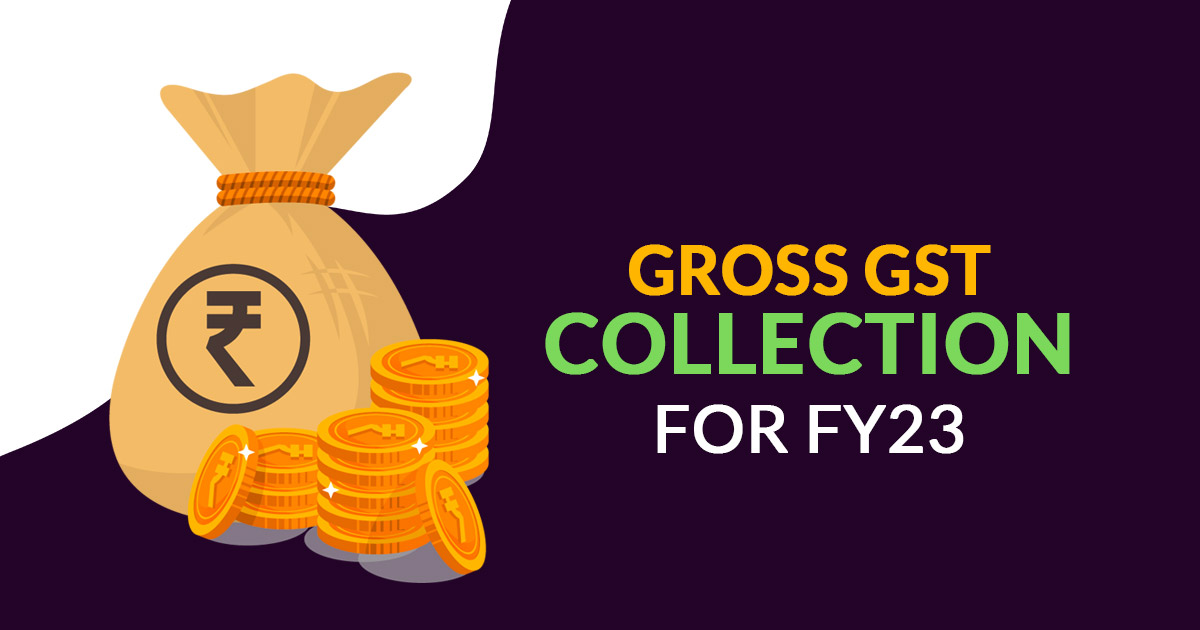
Goods and services tax (GST) collections in FY23 upon the grounds can arrive at an average of Rs 1.35 trillion a month, with respect to a nearly 1.2 trillion budget, as per the official sources. The same pointed out that the gross collections in the year would be Rs 1.8 trillion exceeding the estimated.
Provided that the total receipts are circulated across the centre and the states equally, the union government’s total GST receipts come with the compensation cess proceeds, which can be some Rs 90000 cr exceeding than budgeted Rs 7.8 lakh cr. As described by the Financial Commission, the compensation cess proceeds go to the states entirely and the Centre also transfers 42% of the Central GST proceeds to the states.
Nearly Rs 60,000 cr more in the GST revenue would now union government is collecting than the budget estimate(BE) in the present financial year. Additional CGST collections will provide the support which is truly needed to the centre in the Centre in FY23 to revamp the revenue losses on the basis of the likey excise duty cut on petrol and diesel to save the consumers from high auto fuel cost if the Indian basket of the crude remains over $100/bbl for a long period.
The total rise in the GST collections in the current months because of the investigation on the theft and the greater formalization of the economy post to the pandemic held out in 2020 would assist the GST official to proceed with the rationalization of the tax and slabs to increase revenues. The GST official would seem to meet in April to acknowledge the suggestion of the group of ministers on the rationalization rate which the Karnataka chief minister Basavaraj S Bommai heads. The submission of the report to the council is still pending.
The proposed amendment of GST slabs is meant to ask the revenue-neutral rate to 15-15.5% from the smaller shock from the absence of the compensation procedure from July this year.
Through the daily e-way bills generation towards the inter-state trade in goods beneath the GST compliance at Rs 24.47 lakh in the first 27 days of February, it is the highest since the GST has been incorporated in September 2018, the total GST collections for March (Feb sales) is approximated to be Rs 1.35 lakh cr in the month of March.
GST monthly collections would be the average of nearly Rs 1.23 trillion in FY22. So far, it appears that the collections of CGST will likely exceed the FY22 revised estimate (RE) by at least Rs 20,000 crore. Reportedly, the Centre’s GST receipts (RE) are Rs 5.7 trillion (Rs 40,000 crore more than BE), and the BEFY23 is Rs 6.6 trillion.
“Healthier GST collections will take away some of the pain of the states due to the end of the compensation period,” said Aditi Nayar.
There can be a rise of Rs 50,000 to 60,000 cr over the BE for CGST in FY23 specified by Nayar along with that she said that extra receipts would support revamping the portion of the shortfall on the excise duties when the taxes are cut on the auto fuels.
“If inflation in FY23 is higher than FY22 and GST rates are changed, we may see higher GST collections,” said DK Pant.
FM Nirmala Sitharaman said to Parliament that various states have urged for the extension of the compensation duration beyond June 2022. But, she mentioned that the union government is dedicated to GST compensation to states for 5 years according to the Constitutional provision. In the transition period, the states’ revenue was secured at 14% per annum over the base year revenue of FY16.








